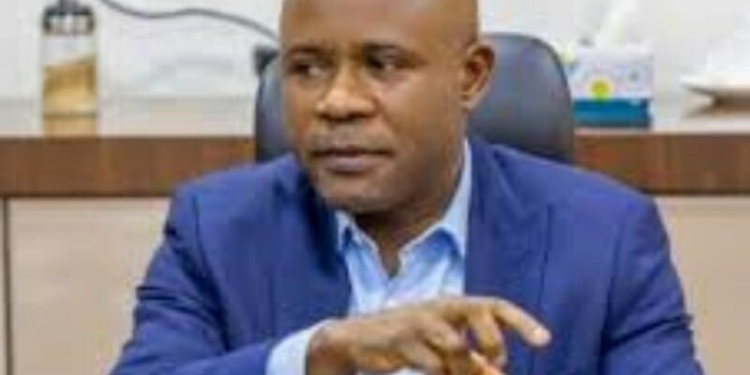- Enugu State Governor Peter Mbah aims to boost GDP from $4.4B to $30B via private-sector partnerships, as seen in meetings with stakeholders
- Mbah’s commitment to economic transformation involves engaging with World Bank, Vice President Shettima, and private-sector investments
Enugu State Governor Peter Mbah is steadfastly pursuing an ambitious economic vision, to increase the state’s GDP from $4.4 billion to an impressive $30 billion.
His strategy entails cultivating strong private-sector partnerships and collaborations.
In pursuit of this goal, Governor Mbah has held a series of strategic meetings, including a private meeting with President Bola Ahmed Tinubu at the Aso Presidential Villa on Friday.
Specific details were not disclosed during this meeting. Still, it is clear that Governor Mbah’s administration is committed to transitioning Enugu’s economy from a public-sector-centric model to one driven by private-sector investments.
This transition is consistent with his overarching goal of transforming the state’s economic landscape.
Recent interactions with key stakeholders demonstrate the governor’s proactive approach.
Notably, he met with Shubham Chaudhuri, the World Bank’s country director for Nigeria, to discuss potential collaboration and financial support avenues.
Governor Mbah also actively participated in the National Economic Council meeting presided over by Vice President Senator Kassim Shettima, demonstrating his commitment to seeking out opportunities for Enugu’s economic advancement.
Tinubu approves presidential CNG initiative
President Bola Ahmed Tinubu has approved the establishment of the Presidential Compressed Natural Gas Initiative (PCNGI).
Presidential spokesman Ajuri Ngelale in a statement on Friday said the move furthers his commitment to easing the impact of fuel subsidy removal on Nigerians by reducing energy costs.
According to Ngelale, the initiative is to revolutionize the transportation landscape in the country, targeting over 11,500 new CNG-enabled vehicles and 55,000 CNG conversion kits for existing PMS-dependent vehicles.
He said it would simultaneously bolster in-country manufacturing, local assembly and expansive job creation in line with the presidential directive.










Discussion about this post